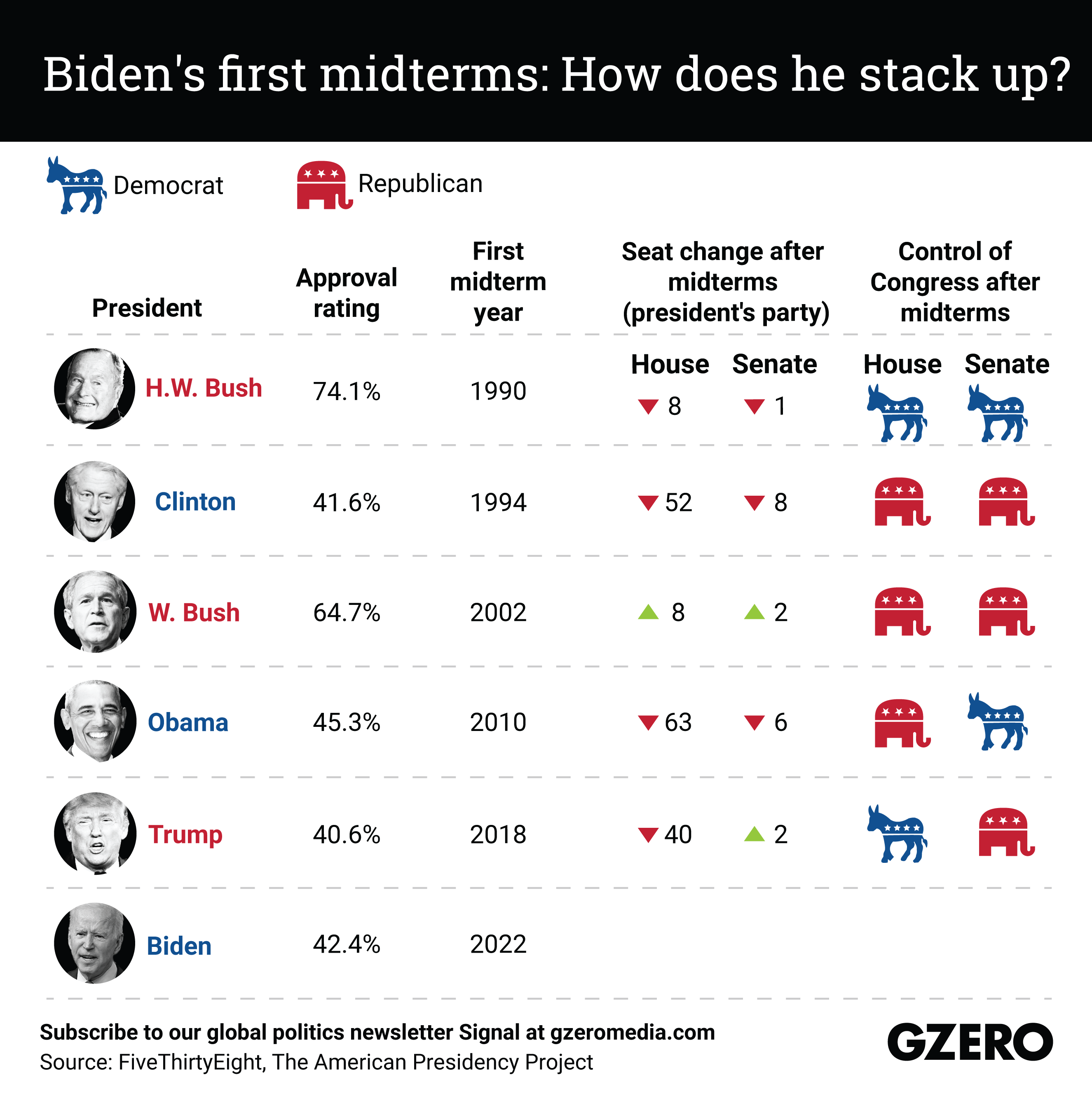The Graphic Truth — Biden's first midterms: How does he stack up?
US midterm elections are always seen as a referendum on the president’s performance. When voters head to the polls this November, it will be the first time they’ve been able to cast a ballot at the national level since Joe Biden won the presidency in 2020. Things aren’t looking great for him: Biden’s approval rating hovers at 42%, and polls suggest that Democrats are slated to lose control of the House of Representatives. But this pessimistic forecast is not unique to Biden. Since Franklin D. Roosevelt occupied the White House (1933-1945), only two presidents (Clinton and W. Bush) have made gains in the lower chamber after midterm elections. We take a look at how Biden stacks up compared to his five predecessors less than two months before the midterms.
- Have Republicans ruined their chances of taking the Senate? - GZERO Media ›
- Herschel Walker's abortion news bad for GOP, but ad spend will determine control of US Senate - GZERO Media ›
- Will US Congress change Social Security? - GZERO Media ›
- Reading the US midterm election tea leaves - GZERO Media ›
- US midterms: Biden, Trump, or abortion/guns/race? - GZERO Media ›
- Can the US get its act together? Susan Glasser & Peter Baker on "the world’s greatest geopolitical crisis" - GZERO Media ›
- Inflation is top issue for US voters ahead of midterms - GZERO Media ›
- US voters think GOP can fix the economy, but can they? Not likely - GZERO Media ›
- "Red wave" coming in US midterms ›
